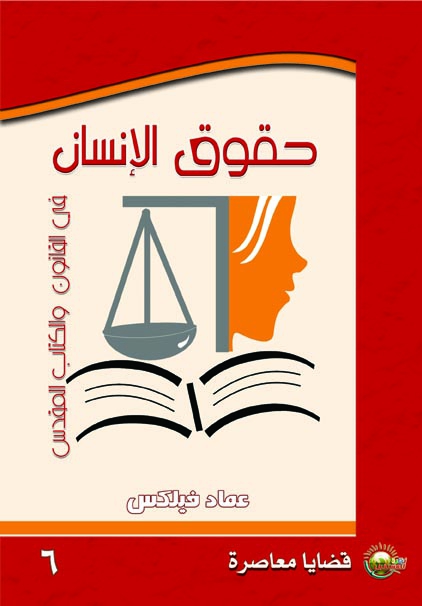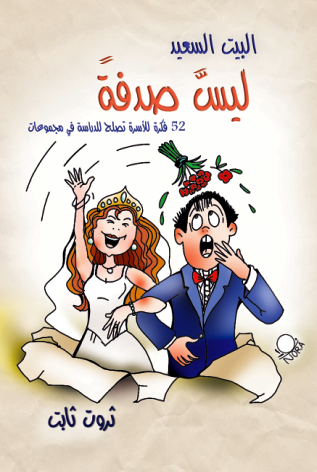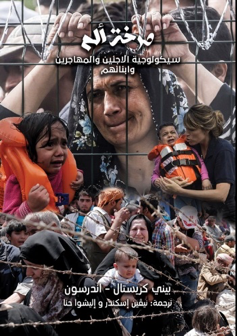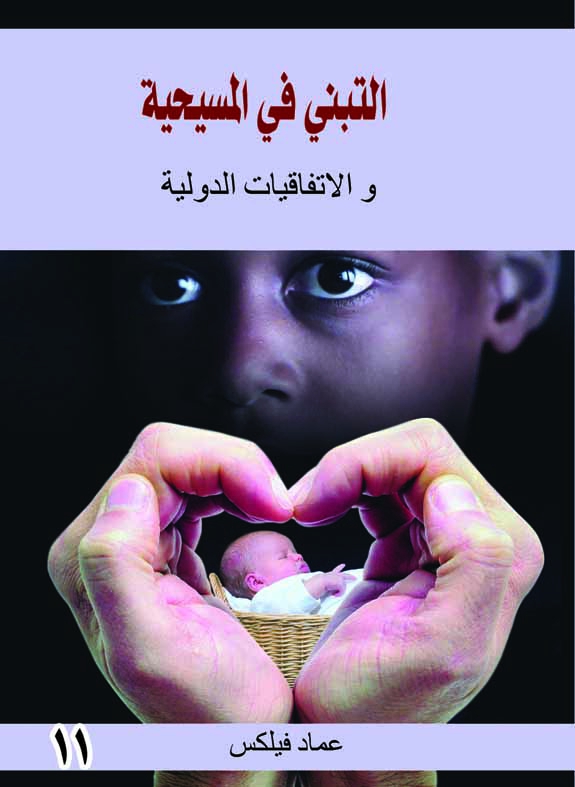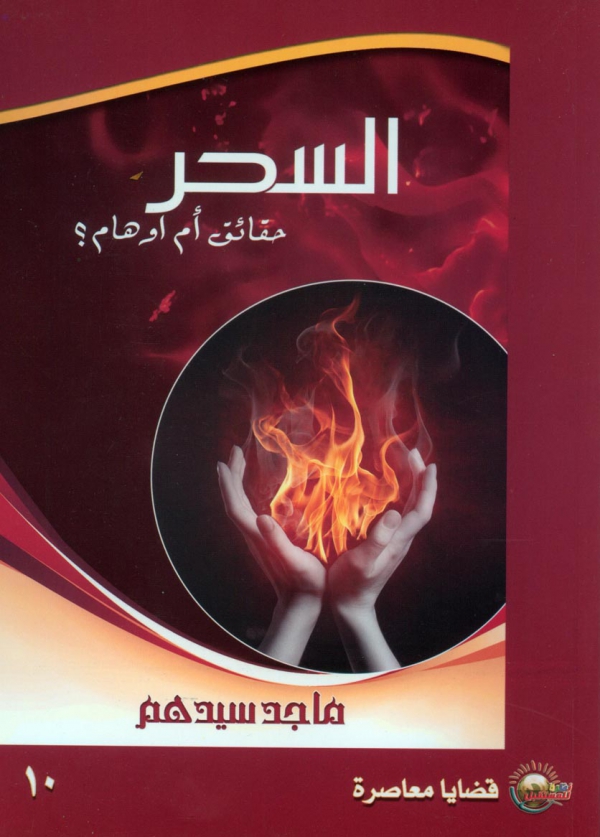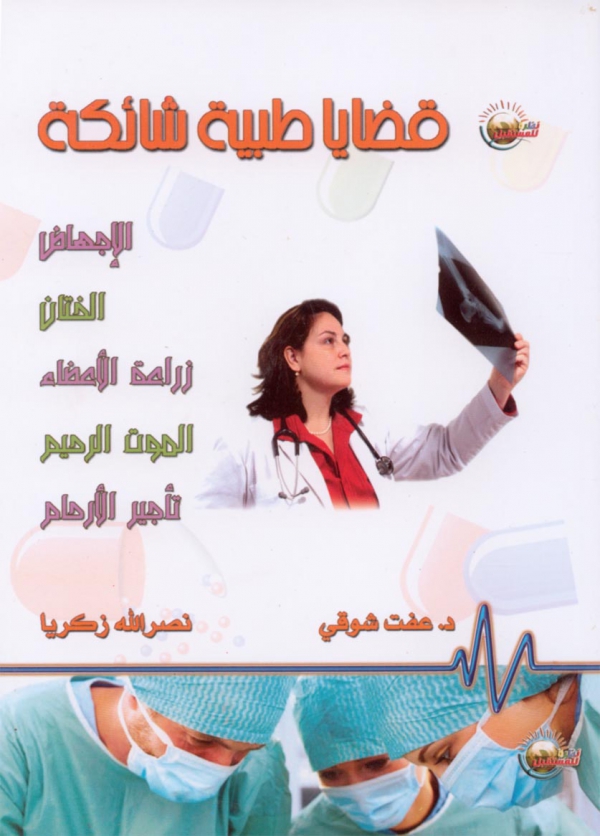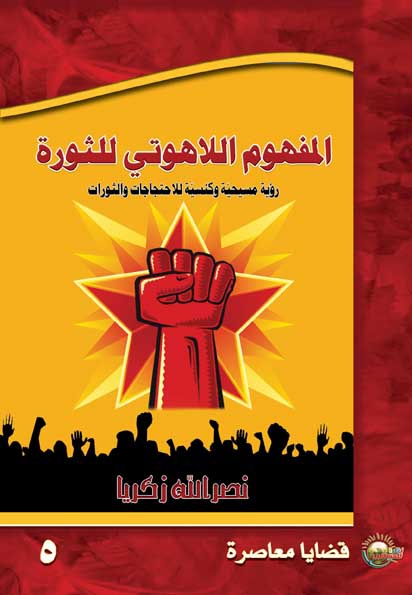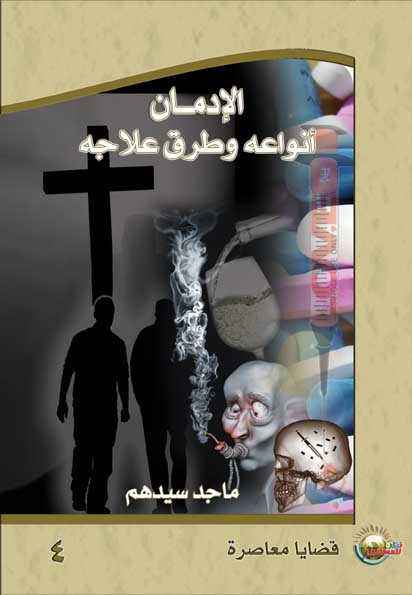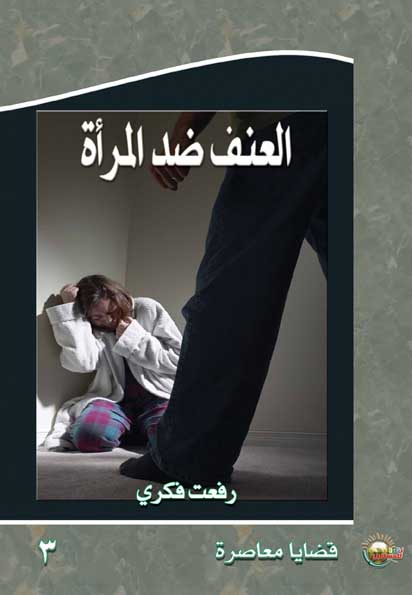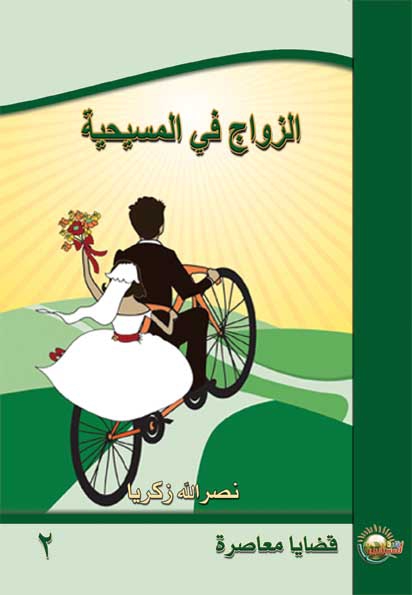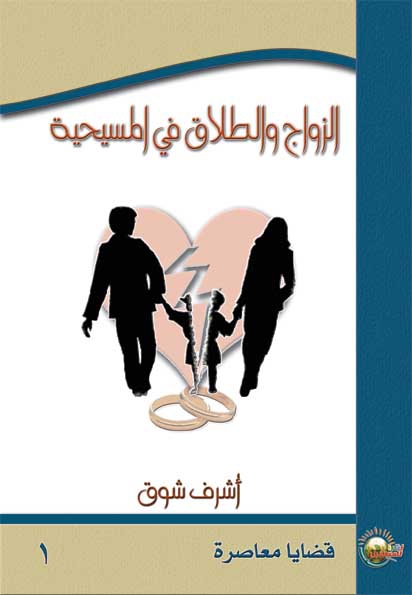Contemporary Issues
The Bible touches on every aspect of our spiritual lives and on our relationships with God. Furthermore, it does not ignore the difficult issues we face in our contemporary lives. It is a book for all times. When we face an issue, we find that the biblical perspective's thinking about it is clarifying. This series deals with contemporary issues (such as divorce, abortion, death and addiction) from a biblical perspective.
Human Rights in the Law and in the Bible
Author: Emad Felix
Publisher: Vision For Future
"Human Rights in the law and the Bible" is the sixth book in Vision for the Future's "contemporary issues" series, and is written by Emad Felix a Human Rights activist. In this medium sized book, of 130 pages, the author tackles the issue of human rights, and several related issues.
Man is born honored. No one can deny his esteem or worth. Part of his inherent dignity is that human virtue implies respecting and advocating this dignity against any form of humiliation or degradation. The importance of such high respect is evidenced in many communities by the fact that respecting human rights is a primary condition for creating a state of inner and outer peace.
Addressing human rights as a concept, the author states: "You can define human rights as those fundamental standards which individuals cannot live without, in dignity, as human beings. Humanity strives for foundations of freedom, justice, and peace. Respect for human rights allows individuals and groups to evolve and to fully develop their personalities." Developing these themes further in this section of the book, the author tackles the following subjects:
1. Why Human Rights
2. Characteristics of human rights
3. A presentation of key terms related to human rights, of which we mention:
Declaration, treaty, convention or covenant, charter or regime, non-treaties based international De facto standards, Protocol, ratification, reservations, complaint, and international legitimacy of human rights.
4. The major components of the legitimacy of international human rights represented in:
A- Universal Declaration of Human Rights
B- International Covenant on Civil and Political Rights
C- International Covenant on Economic, Social and Cultural Rights
D- The first Optional Protocol establishing mechanism to receive individual complaints
E- Second Optional Protocol to abolish the Death Penalty
Next he focuses on the details of the position of the Constitution, the law, and the Egyptian judiciary of international conventions. In regard to the Hamayonic decree, the writer states: "The issuance of the Hamayonic decree dates back to February 1856 during the reign of Mohammed Said Pasha, who assumed power in Egypt in the year 1854. He released this Hamayonic decree to regulate building and restoration of churches during the period of the Ottoman occupation of Egypt, where Egypt was only nominally a part of the Ottoman authority."
But what is the story of the Hamayonic Decree? The author illustrates: "The Story of the issuance of this decree dates back to 1856, when a conference was held in Paris to end the war that broke out between the Ottoman Empire and Russia. It is worth mentioning that England and France were on the side of Ottoman Sultan Abdul Majid, a fact which enabled him to triumph over Russia and thus fell Sebastjul. As a courtesy, the European countries asked the Ottoman Sultan to issue the Hamayonic decree (or firman) which regulates the building and renovation of churches, of all Christian denominations in the Ottoman Empire. Under pressure from France and England he issued a decree known as the Hamayonic decree in February 1856AD.
But what about the unconstitutionality of the Hamayonic decree and the unconstitutionality of the administrative resolution of Ministry of Interior, known as The Ten conditions of Al Ezabi, as illustrated by the writer? Here, the author takes us to another Human Rights issue: Human Rights under emergency law.
He addresses the concept of the state of emergency in international law as follows:
"In a time of exceptional state of emergency, which is officially proclaimed, and which threatens the life of a nation, the states may take strictly limited measures required by the situation, punishing the non-compliant according to the Law, provided they themselves remain compliant with their other obligations under international law and do not act according to any form of discrimination on the grounds of race, color, sex, language, religion or social origin."
In this regard, the writer addresses:
- The rights of a detainee under Emergency Law
- The display of an image of an imprisonment grievance, according to Emergency Law
Next he comes to the role of the police in the protection of human rights, addressing police stations and centers during the stage of collecting evidence. He says: "The stage of collecting evidence is a stage prior to the criminal lawsuit. It is a preliminary preparatory stage of opposing procedures because it is both a collection of information and data related to the offense through investigation and a search of offenders in various legal ways and means. According to the results the necessary elements are prepared to begin the primary investigation. Conjecture aims to uncover truth and control crimes and offenders. Thus, Article 24 of the Criminal Procedure Law stipulates the jurisdiction of law enforcement officers that they may exercise during these stages of investigation and conjecture. The stage of collecting evidence comes after the crime happens. It does not fall within the criminal proceedings and is not considered part of the adversary procedure. Article 21 of the law of Criminal procedure provides that the judicial officer will search for crimes and perpetrators, and collect necessary evidence for the investigation of the case."
In the context of the Ministry of Interior's commitment to legitimacy, rule of Law, and good treatment of the public, one of their main purposes of Police stations and departments is to be the provision of legal safeguards for citizens during the process of collecting evidence. The author introduces us to all of these safeguards, and then examines the problem of their violation, when committed by the judicial officer and represented in: criminal, civil, and disciplinary responsibility.
After the January 25 revolution, we heard a lot about the referral of civilians to military courts. Actually, the referral of accused civilians to military courts stops the ordinary way of the judiciary from extending its mandate over actions committed by civilians, and this represents an encroachment on the right of the accused to appear before the ordinary judge, and is an assault on the right of the community to preserve the independence of the judiciary system and its fulfillment of its entrusted tasks. This is the issue which the writer raises by tackling the issue of military trials and human rights.
Here, the author addresses the issue of human rights in the Bible by way of two main points, namely:
- Justice in the Bible
- Justice and Human Rights in the Bible
He says: "There is no doubt at all about God's justice, and when we contemplate this attribute of God, we find that it is one of his unchanging attributes, historically and theologically. The chapters of the Bible illustrate justice as a fundamental aspect of God's nature. God's justice is what formed and shaped church history and the thoughts of leadership throughout the ages about different issues. This is what gives confidence to believers, no matter how injustice increases and the night of grievances prevails. The light of divine justice must eventually shine...
About justice and human rights in the Bible, the author says: "human justice and human rights are mainly related to our behavior toward others, especially with regard to their rights in the field of business where God says:" The LORD detests dishonest scales, but accurate weights find favor with him"(Proverbs 11:1).
He eventually concludes his study, saying: "In conclusion, we cannot help but be proud of what the Egyptian people did during the revolution of 25 January, when they faced up to corruption and oppression, and stood up for human dignity and social justice. It was a real breakthrough for the application of human rights' principles, not only in Egypt, but in every Arabic country that remains under oppression, tyranny, and dictatorship. Inspired by Egypt's revolution, others refused to succumb to this tyranny, and demanded freedom and human dignity, which form the core of human rights principles."
